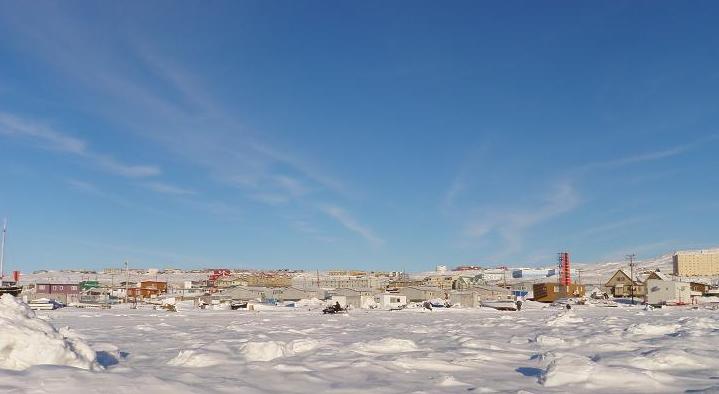Nunavut Inuit Women’s Association launches poster campaign against child abuse

The Amautiit Nunavut Inuit Women’s Association’s launched a child abuse awareness campaign on Friday, saying they hope it helps advocate for the rights of children to grow up in households free from abuse.
“Amautiit hopes that the launch of this campaign will serve as a reminder to all Inuit to speak up and speak out against child abuse of any kind,” the group said in a statement.
The association partnered with Qulliit Nunavut Status of Women Council and Pauktuutit Inuit Women’s Association on the project.
“Pauktuutit supports Amautiit’s ‘No Excuse for Child Abuse’ campaign, which encourages the right of children in the territory to grow in a safe environment without violence and harm,” Gerri Sharpe, Pauktuutit’s president, said.
“It is vitally important to keep our children safe.”
Artwork for the campaign was contributed by Charlotte Karetak.
No one from Amautiit responded to a request on Friday for details about the poster campaign and its duration. But in a news release, the association said the project was launched in response to Nunavut’s high rates of child abuse.
Family services struggling to respond
In May, the Auditor General of Canada issued a report on Child and Family Services in Nunavut saying vulnerable children in the territory were not getting the help and care they needed and described the situation in the territory as a “crisis.” It’s the third such report the office has issued on child welfare services since 2011.
“When children are at risk in their home environments, we found that the Department of Family Services did not respond or was slow to act in many cases,” the report said.
“The audit found failures in all areas examined, from responding to reports of suspected harm, to completing investigations and following up with children, youth, and young adults placed in care in the territory or in southern Canada. Alarmingly, the Department of Family Services also could not provide accurate numbers on the number of children in its care.”
Amautiit said studies have shown the long term impacts of child abuse on mental health and suicide risk in Inuit and that reducing child abuse in Nunavut needs a concerted response.
“Child sexual abuse, family violence and high suicide rates are ongoing challenges which require a constant, focussed response,” the association said.
“By working with partner organizations, we can address the causes of these challenges and, in the meantime, provide adequate assistance for the victims and their families.”
Comments, tips or story ideas? Contact Eilís at eilis.quinn(at)cbc.ca
Related stories from around the North:
Canada: Youth protection officials in Nunavik say they can no longer ensure children’s well-being, CBC News
United States: Alaska and its tribes sign child services agreement, Alaska Public Media



